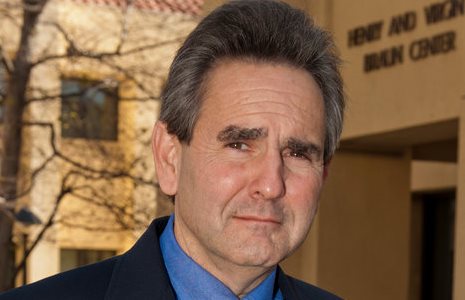Dr. Robert Kaufman Reacts to Controversy Over Obama Response to Benghazi | The Orange County Register
Robert G. Kaufman: Why Benghazi really matters
 Documents newly obtained and released under court order have reignited the controversy
over the Obama administration’s response to the Sept. 11, 2012 attack on the American
consulate in Benghazi.
Documents newly obtained and released under court order have reignited the controversy
over the Obama administration’s response to the Sept. 11, 2012 attack on the American
consulate in Benghazi.
Terrorists killed four Americans, including J. Christopher Stevens, the U.S. ambassador to Libya. Newly disclosed emails prove that the White House engineered a campaign to blame the attack on an anti-Islamic YouTube video.
According to Rep. Darrell Issa, R-Vista, the White House emailed YouTube, warning of the consequences of posting the video. Deputy National Security Adviser Ben Rhodes also emailed the administration’s PR personnel, instructing them publicly “to underscore that these protests are rooted in an Internet video, and not a failure or broader failure or policy.” Then Susan Rice, the then-U.S. ambassador to the United Nations, also received a copy of the Rhodes email in preparation for her appearance on five television talk shows, where she portrayed the attacks as “spontaneous.”
Congressional Republicans have focused mistakenly on the administration’s duplicity. Although the administration willfully misled the American public, the president probably violated no laws. Benghazi does not equate to Watergate.
Instead, Benghazi has far greater significance for what the episode reveals about President Barack Obama’s warped view of the world, the harm it inflicts and the dangers it invites. Initially, the president resisted the overwhelming evidence indicating Benghazi was a premeditated terrorist attack timed for the anniversary of 9/11 because admitting the obvious would have controverted his tenaciously held, but fallacious, core assumptions. Obama simply cannot fathom the threat of what scholar Daniel Pipes rightly calls “Islamism.”
Obama’s default position on Benghazi exemplifies this parlous propensity. Consider similar examples of an administration in denial. The Obama administration classified as “workplace violence” Major Nadil Hassan’s murderous spree at Fort Hood, Texas in 2009, killing 15 and wounding more than twice that number even though Hassan himself admits shouting out “Allahu Akbar” (“God is Great” in Arabic) while opening fire.
The Obama administration once considered the Muslim Brotherhood in Egypt a legitimate democratic alternative to Hosni Murbarak rather than a virulently anti-American and anti-Semitic Sunni version of the horrifying Shiite tyranny running Iran. President Obama continues fulsomely to praise Turkish Prime Minister Tayyip Recep Ergodan while the latter moves Turkey steadily in a more anti-Western, anti-American, anti-Semitic, pro-Islamist, direction. Neither the militant mullah’s incendiary rhetoric nor his provocative policies have dispelled the president’s enthusiasm for engaging a revolutionary Islamist Iranian regime bent on crossing the nuclear threshold and menacing American allies in the region. The administration conceives of terrorism as a diminishing problem minus Islamism, targeting only “al-Qaida and its affiliates” while “heavily” constraining “the use of drones.”
According to Michael Hirsh, the national editor for Political Magazine former chief correspondent for the National Journal, “the tendency to ignore, sidestep and minimize the violent actions of the Islamist militias in Benghazi” also has suffused the Obama administration’s approach toward Boko Haram – the terrorist group that kidnapped more than 200 Christian girls in Nigeria’s Borno Province in April. Abubakar Shekau – the homicidal Islamist leader of Boko Haram – has declared his allegiance to al-Qaida. His group has killed thousands of innocent civilians. Yet former Secretary of State Hillary Clinton successfully opposed designating Boko Haram as a terrorist entity for two years until her successor John Kerry belatedly did so in 2013.
The administration’s mistakes dealing with Boko Haram and Benghazi reflect its overriding resolution to restrain American power and relinquish America’s global leadership.
So the Obama administration did not consciously cover up what really happened in Benghazi. The problem lies in the president deceiving himself. House Republicans should conduct their impending hearings primarily for the purpose of educating the American people about what the administration believes and why it endangers the national interest. The United States cannot defend itself or its allies without first properly distinguishing American friends from foes.
Unfortunately, mistakes such as Benghazi likely will proliferate in the final years of Obama’s watch because the president’s foreign policy sorely lacks strategic and moral clarity.
Robert G. Kaufman is a professor of public policy at Pepperdine University.